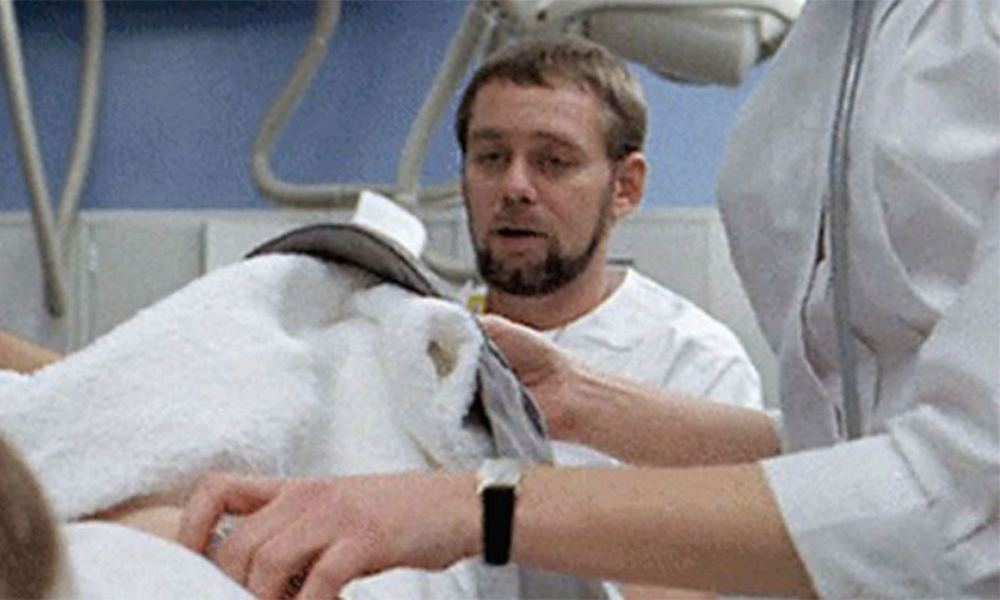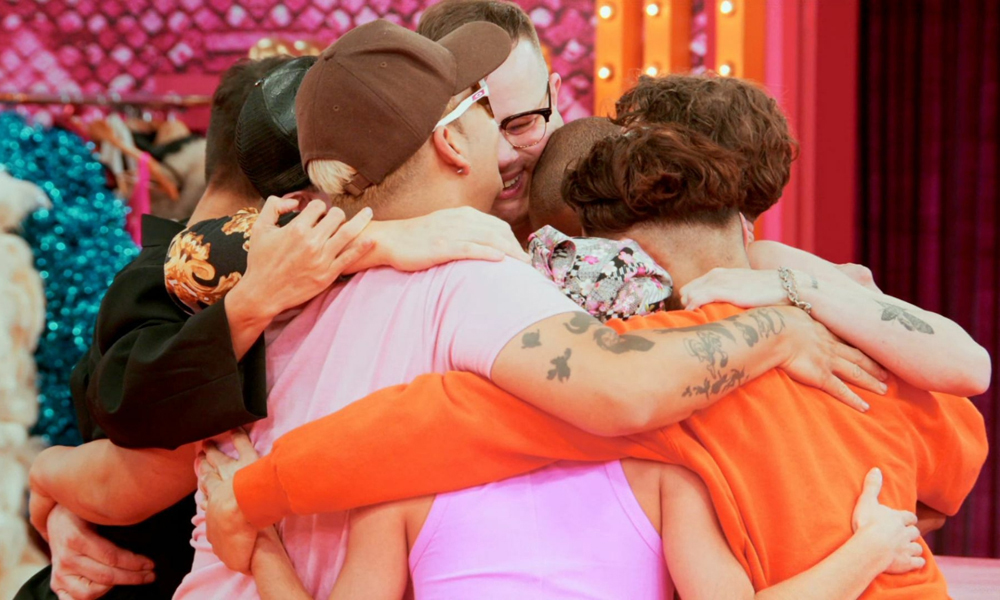Paul Bateson was an extra in The Exorcist and also went to prison for murder…
If you’re a true crime fan, you know there’s no shortage of books, documentaries, podcasts and original reporting dedicated to the victims of violent crimes and the people who commit those crimes. At the same time, we know that cases that get the most attention are usually ones that are committed against white, middle class, cisgender people. Meanwhile hate crimes, including murders of gay, trans and non-binary people are on the rise. Queer Crime is a monthly column focusing on true crime with an LGBTQ+ spin whether it’s the victim or the perpetrator.
This month, we’re investigating the story of Paul Bateson, a radiology technician, one-time actor, convicted murder, and suspected serial killer of gay men. In 1973, Bateson worked at New York University Medical Center as a neurological radiological technician. In his one and only film role, Bateson appears in The Exorcist as an extra in the hospital scene where Regan is being examined for medical issues that might be causing her strange behaviour. Only a few years later, Bateson would be serving a prison sentence for murder.
In 1977, Bateson had lost his job at the hospital due to a drinking problem. He was openly gay and known to be a regular at leather bars in New York which is where he met his only confirmed victim, Variety journalist, Addison Verrill. On September 14, 1977, Verrill was found stabbed and beaten to death in his own apartment.
Police originally thought it was a robbery gone wrong, but Village Voice reporter Arthur Bell believed otherwise. He wrote about Verrill’s murder and how murders of gay men in the Village were usually seen as the consequence of sexual encounters gone wrong so they were rarely taken seriously by police or covered by the media. Bell wrote,“[Verrill’s murder] was not a break-in crime. Verrill had brought his assailant home or allowed him into the apartment.” Turned out, he was right.
Eight days after Verrill’s body was found, Bell got a call from someone who claimed to be Verrill’s killer. According to Bell, the caller said “I like your story and I like your writing, but I’m not a psychopath.” He went on to describe his night with Verrill—the two men met at a popular gay bar on Christopher Street, did drugs together and then went back to Verrill’s apartment. After the caller realized Verrill did not want the relationship to go any further than a one night thing, he snapped. “It was rejection that triggered things. Something flared up in my head. I decided to do something I’d never done before,” he said. “I took a heavy frying pan from the kitchen and knocked Addison out. Then I went into a drawer in the right-hand side of the kitchen, removed a knife, and stuck it into Addison’s chest.”
Bell went directly to the police and it didn’t take them long to zero in on Paul Bateson and arrest him. Although Bateson didn’t seem surprised to be arrested and made a similar confession at the police station, he tried to backtrack and deny everything during the preliminary trial. The judge ruled that his confession was admissible and Bateson ended up being found guilty of murder and sentenced to 20 years in prison.
Around the same time, there was another ongoing investigation into the murders of six unidentified men who had been linked to NYC’s gay scene. The victims were all found dismembered and thrown in garbage bags into the Hudson River. According to court transcripts, duding his sentencing for the Verrill murder, prosecutors briefly tried to also connect the serial killings to Bateson with little evidence to support their theory. All they really had was the fact that the medical examiners said “the person who cut up those bodies was a person who was either a butcher or a person with medical knowledge because of the way the cuts were done.” Bateson, being medically trained—and gay—fit their narrow idea of who the killer must be. The judge ruled that there wasn’t enough to support the theory and Bateson was never charged with those murders.
Meanwhile William Friedkin, the director of The Exorcist, heard about Bateson’s murder conviction and decided to pay him to visit him in prison. In a Hollywood Reporter article, Friedkin briefly mentions the visit and claims that Bateson implied he was considering taking a plea deal and confessing to the other murders. Friedkin has since said the conversation inspired him to make the movie Cruising, which is about a cop who goes undercover in the NYC gay scene to try to catch a serial killer.
It’s not impossible that Bateson was the person responsible for the killings dubbed “the bag murders”, and other than brief mentions of it, there’s no evidence to corroborate the claims. It seems more likely the police suggested to Bateson that if he confessed to these other murders—whether he did them or not—he could get a lighter sentence for the murder he did commit, and they would be able to close the cases.
There is even an episode in the second season of Mindhunter that alludes to this. Bateson is interviewed by two FBI agents in prison and he says the police “keep trying to get me for that,” referring to the murders of the unidentified men. “The cops actually said if I confessed I would do less time on a plea deal. They just want to say they close the books.”
While there are plenty of people who want him to be the one responsible for those unsolved murders, it turns out there isn’t anything concrete to back up the legend that Paul Bateson, actor in The Exorcist, is a serial killer. It’s just another dark story to add to the list of “curses” the production supposedly fell victim to.
Paul Bateson served his time for the murder of Addison Verrill and was released in 2003. What happened to him after that is unknown. The six men who were murdered in the 70s are still unidentified and their murders remain unsolved.
For more of Courtney Hardwick’s fascinating QUEER CRIME series click here.






POST A COMMENT